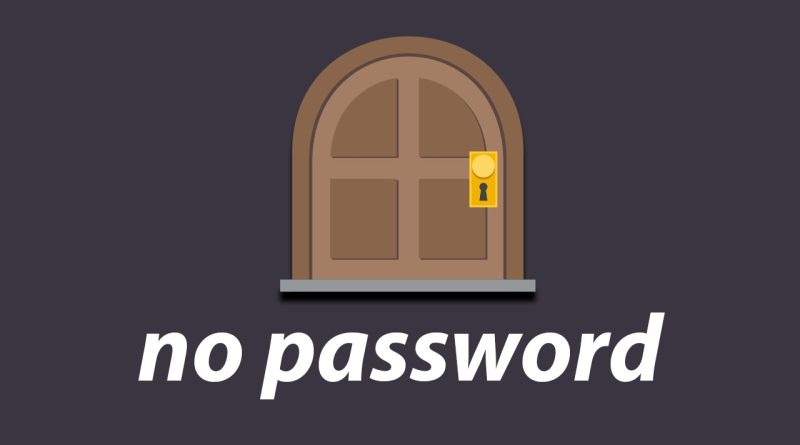new SSH exploit is absolutely wild
OpenSSH has been rocked by a new RCE vulnerability. But, it may not be as scary as people are making it out to be. Find out why in this video.
https://blog.qualys.com/vulnerabilities-threat-research/2024/07/01/regresshion-remote-unauthenticated-code-execution-vulnerability-in-openssh-server
https://www.qualys.com/2024/07/01/cve-2024-6387/regresshion.txt
🏫 COURSES 🏫 Learn to code in C at https://lowlevel.academy
🛒 GREAT BOOKS FOR THE LOWEST LEVEL🛒
Blue Fox: Arm Assembly Internals and Reverse Engineering: https://amzn.to/4394t87
Practical Reverse Engineering: x86, x64, ARM, Windows Kernel, Reversing Tools, and Obfuscation : https://amzn.to/3C1z4sk
Practical Malware Analysis: The Hands-On Guide to Dissecting Malicious Software : https://amzn.to/3C1daFy
The Ghidra Book: The Definitive Guide: https://amzn.to/3WC2Vkg
🔥 SOCIALS 🔥
Come hang out at https://lowlevel.tv
by Low Level Learning
linux foundation




haha wouldn't it be cool if you learned C and assembly haha https://lowlevel.academy
But if this really boils down to signal + malloc, isn't a lot of software besides OpenSSH affected? And does this mean that signals are useless for everything except maybe doing some cleanup and logging before shutting the process down?
I really hope I misunderstood something.
why are trying to explain something you youself don't even understand?
When are they gonna rewrite sshd in Rust 🤔
Basically while the OpenSSH "regreSSHion" vulnerability sounds concerning, it's not a major threat. Exploitation is complex and requires hours of attempts under specific conditions, making widespread attacks unlikely. Many systems already have mitigations like brute-force detection in place, and the scope is limited to certain OpenSSH versions. Patch your systems
…no need to panic.
We can hangout? By pressing like button 0:38
anyway… who uses 32 bit nowadays?
are there any researchs on amd64?
And who has his ssh ports open to the wild without any wireguard connection or something else to protect it? Takes a long time on a amd64 with a non stable internet connection…
the attack vector is there but with minimum security most likely avoidable
Openai and openssh. 🤔
Would you be able to do a video explaining ASLR? I understand the basic concept, but don't understand how it doesn't cause code to break.
aT THE END OF THE DAY? wHAT ABOUT OTHER TIMES OF THE DAY???????????????
Everyone keeps showing that SSH has one of the easiest and most insanely powerful mechanics to exploit, that just won't stop getting hammered with a high success rate over time
You don't have a use case for it, it doesn't do anything for a daily driver
But its name includes the word "secure", and it's been labelled as safe; so you MUST install SSH onto everything NOW — or you're just crazy, and have wrong opinions
Why can you even "send" code to the openssh process? It should first check the credentials? Am i missing something?
More evidence of how social media nowadays over blows everything for content. This hack blows, its old and it would never work on any decently/badly defended infrastructure. The end.
Setting LoginGraceTime to zero does not log you out after 1 failed attempt. It appears to remove a login time limit completely. While it's good to always be using the latest releases, if you are set up to disconnect after three failed attempts, is this problem moot, since timing is not involved?
I dislike titles like this. This is not "new" in any meaningful way – its like finding a "new" exploit in Win7 or vista – clickbaiting to make SSH seem vulnerable when the version is eons old is dishonest.
Noob here. What does it mean "Step 1: Get your SSH off the internet"
How then am I supposed to connect to a remote server? Or was that meant generally to keep the SSH port closed if you are not using it?
"Don't expose ssh to the internet"… ok, so what is the better option for secure remote access to servers? What's the magical software that is more secure and has a smaller attack surface? Or are you suggesting computers simply can't be managed remotely? Way to undermine your whole video with wildly dumb advice at the end.
Update your servers. Disable ssh password authentication. Maybe configure bans after a number of failed attempts. Definitely don't just throw up your hands and give up on secure remote access.
This can be mitigated with a trivial change to a config file
It takes concerted effort over time on 32-bit
It probably isn't possible on 64-bit due to planning to prevent these things
It's been fixed and an update has been released
It's never been proven to exist in the wild.
So, not losing any sleep AT ALL over this one. Academically fun, but not something that rising to any concern whatsoever.
"SSH is a joke, I know the guy who made the backdoor" – Programmers are also human, 2024
This is why my SSH ports are only accessible from my VPN IP address
Would this affect ARM too?
Software from 2024, website from 1994
What a champ and good explainer.
yo, i'm no code guy but enjoy stuff like this from u, primeagen, dave's garage n the likes, i appreciate the logic n informative value u guys bring
For critical projects like this (at the very least), there should be a process built into the commit procedure that checks for various types of vulnerabilities, and especially for specific vulnerabilities that were previously found and patched.
I'm gonna go out on a limb and guess that some of the people who work on making that software work for the NSA under the table. Hiring insiders like that is part of the fed's m.o. for purposes like this.
I have disabled ssh service & uninstalled openssh in linux distro. Am I safe?
I have disabled ssh service & uninstalled openssh in linux distro. Am I safe?
Next major version, rewritten OpenSSH with Rust.
thanks for the great explanation.
I sent a similar video to someone at my office. He's like: updating the libraries now. We then talked about the importance of testing known weak points in code (since it was a regression). Gotta keep an eye on known previous points of failure.
This literally bounced off my smooth brain 😂
I want to get in
The way you say qualys as "qualles" 0:12 😵💫
Your explaination for laypersons is very very good. I'm not a programmer or security expert by any means, but found it was easy to comprehend thanks to your summary
oh yeah, be sure to be up to date for all the security fixes